For over 200 years, residents in Thanh Phu Commune of Vinh Cuu District, Dong Nai Province have kept pig iron furnaces in preservation of their long-standing traditional craft.
The traditional craft of pig iron casting in Thanh Phu Commune (previously Binh Thanh Village, Phuoc Vinh Ha canton) was founded by Dao Van Nam who was considered the craft’s ancestor and it has been handed down from generation to generation. Every year on February 2 of the lunar calendar, craftsmen in the commune gather in the ancestral worshiping hall to commemorate their craft ancestor and recall the craft’s development history. With only simple tools, such as two bellows, a blast furnace, some clay moulds, and charcoal for iron-casting, the craft ancestor made the first cast iron products. Some of these included ploughshares, spade blades and pig-iron pots. Since then, the craft has been done by the locals and is now done in neighbouring areas such as Tan Phong, Binh Thanh, Binh Loi and Binh Y with hundreds of blast furnaces, bringing the main income to the majority of the locals.
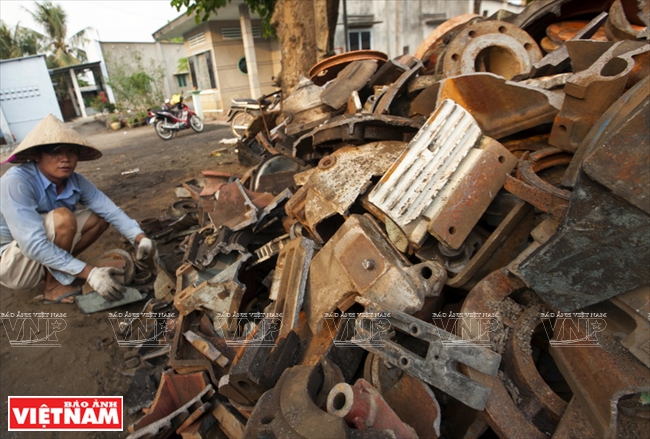
Iron scraps for making pig-iron.
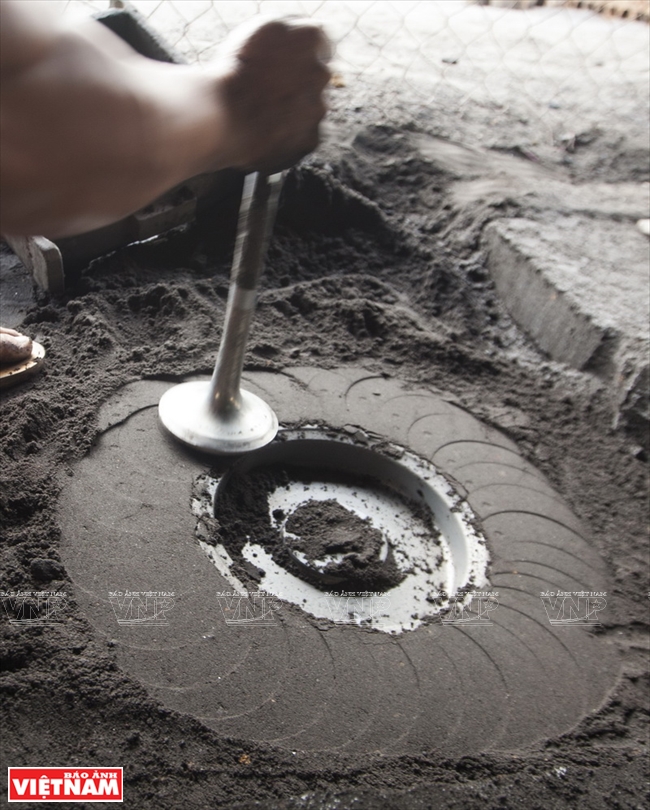
Making a cast mould, an important stage in making pig-iron.
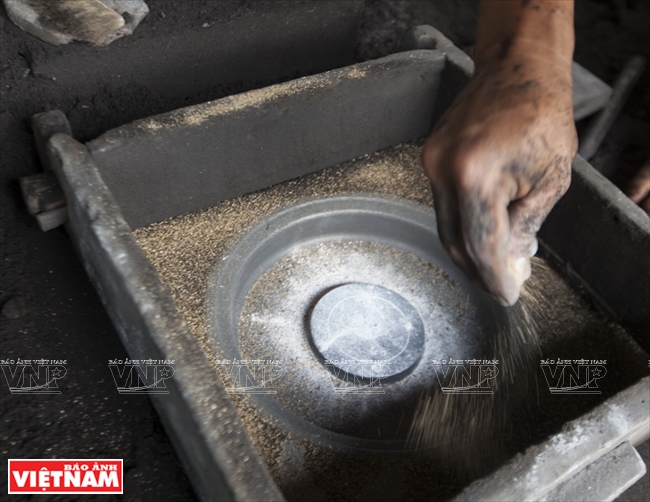
Making the mould.
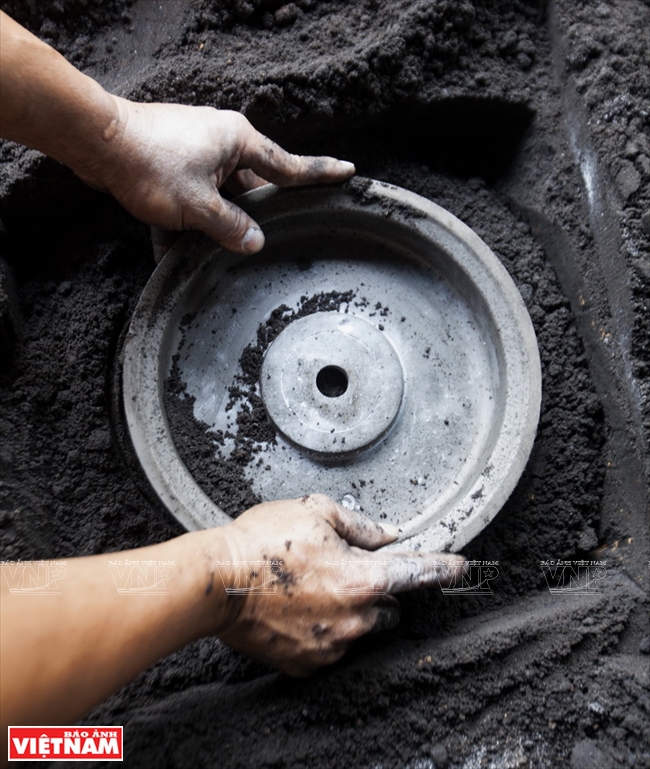
Placing the mould.
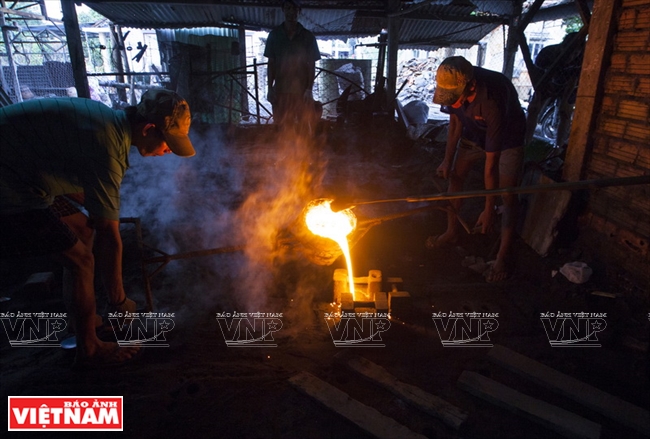
Pouring melted cast iron into the mould.
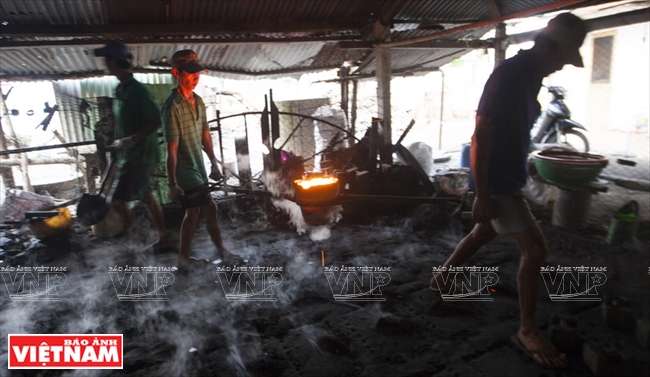
Putting melted cast iron into the furnace.
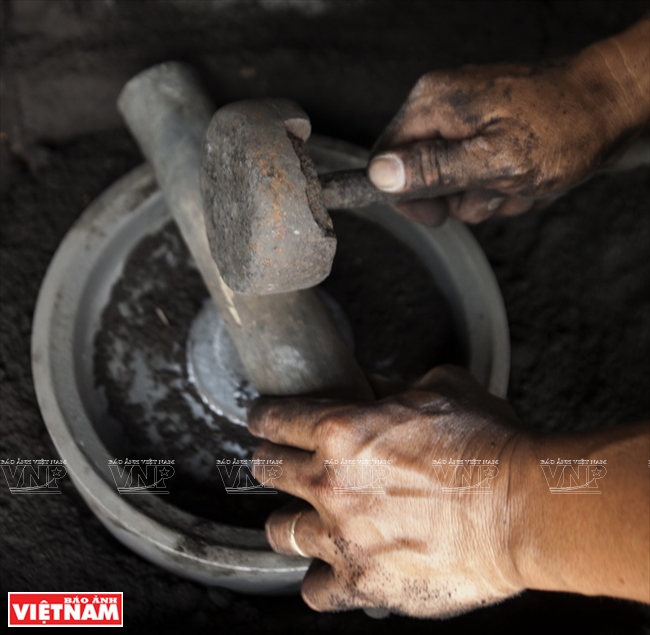
Testing the quality of a product.
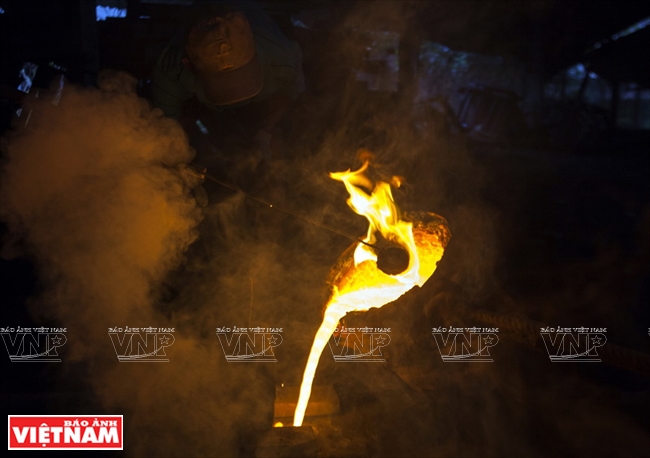
Thanh Phu cast iron products are of a high quality.
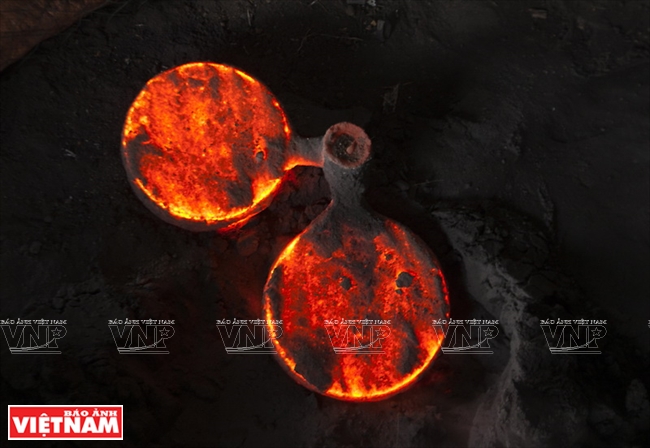
A finished product.
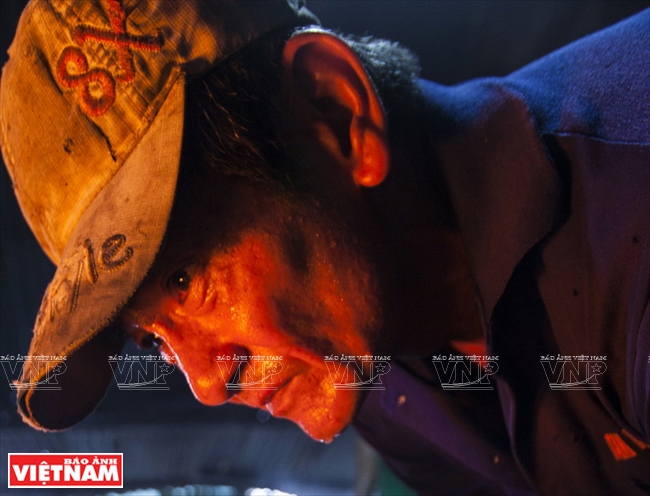
The village has many skilled craftsmen who are whole heartedly devoted to the craft.
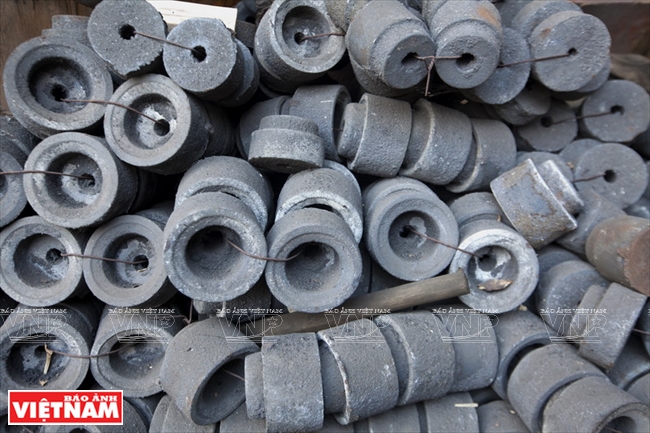
The village’s products are sold in both domestic and foreign markets.
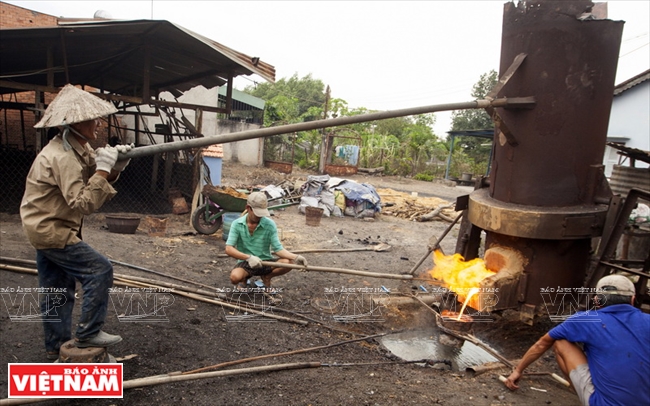
The furnaces which are always burning show the vitality of the craft in Thanh Phu. |
According to the elders in the commune, during the wars against the Americans and the French, the locals secretly cast covers of grenades for the local revolutionary army, contributing to the nation’s success. After liberation day on April 30, 1975, the locals invested in casting techniques and further boosted the development of the industry. To increase the productivity and improve the quality of products, many furnace owners in the commune went to Saigon to learn new techniques to rebuild and renovate their furnaces, thereby producing iron casting appliances for industrial establishments in the city.
Le Van Ut, Chairman of Trong Nghia Cooperative in the commune, said that in the 1990s the villagers made high quality products which were sold in the domestic market and exported to some foreign countries. There were times their products were in high demand and they could not make enough products for customers. Employees in many workshops in the village had to work more shifts. The craft provided stable jobs for hundreds of the locals and helped them earn a high income.
To enhance their products’ competiveness, the commune established Trong Nghia Pig-Iron Cooperative in 2006 which gather the most skilled craftsmen of the commune to make diverse products to provide to agricultural machinery companies, namely Vikyno, Vinappro, Thanh Nhan Export Company and hi-tech companies. The products include pulleys in rice-husking machines, spare parts for brick pressing machines, diesel engines, water pumps, cast-iron pinions and bridge axes.
Nguyen Van Minh, owner of a pig-iron furnace in Hamlet 2, Thanh Phu, said that his unit has 10 employees and daily cast 2tonnes of products. Some skilled craftsmen are capable of casting 400-500kg/day and earn 400-500 thousand dong/day.
Le Van Ut said that the cooperative now plans to expand the manufacturing area and invest more in equipment such as lathe machines, shot blasting machines and drills. They will also need to train more engineers and managers so they can do some other stages of casting and lathing to create more finished products that help reduce prices and bring more profits, boosting the development of the craft.
Story: Nguyen Vu Thanh Dat - Photos: Thong Hai